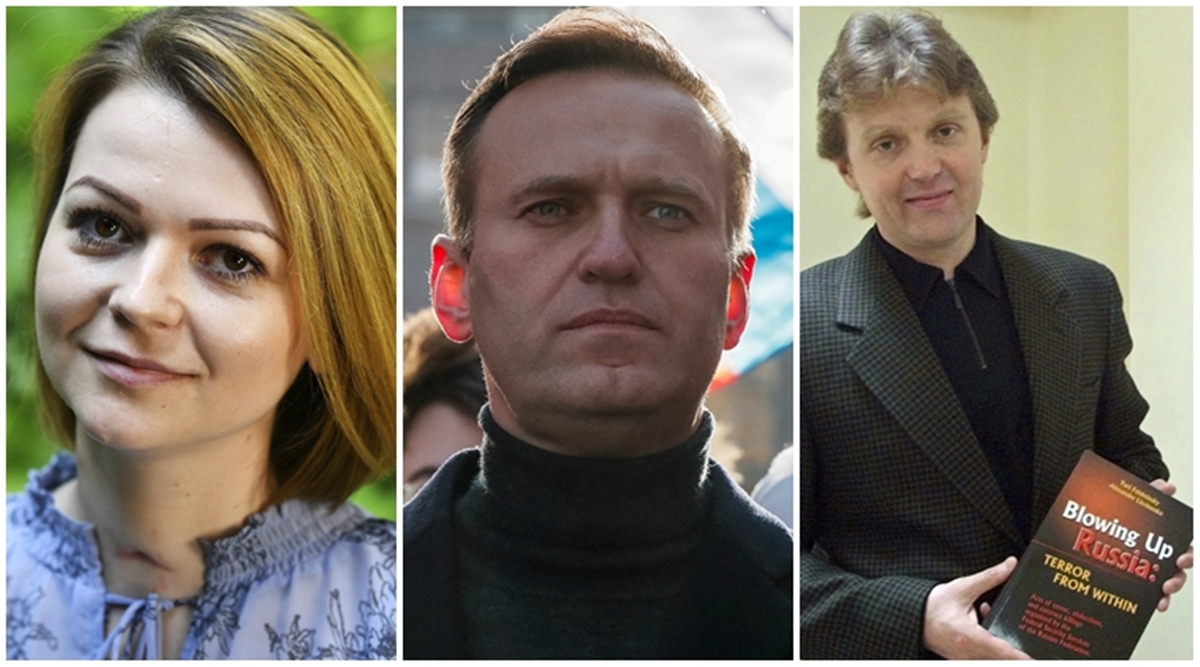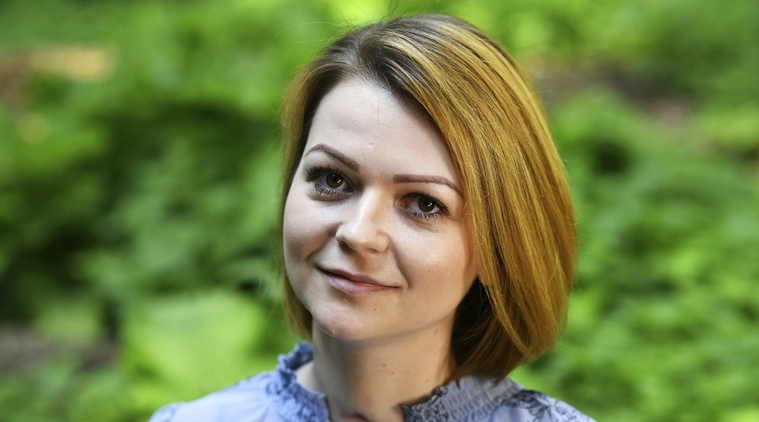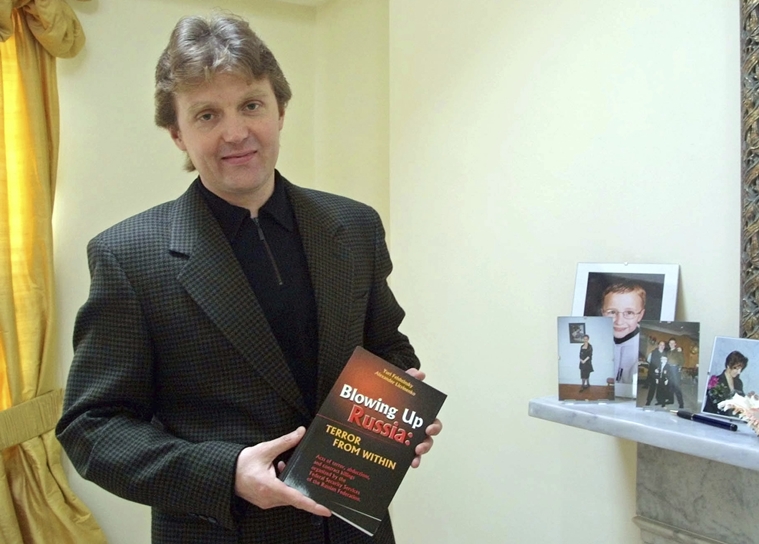
[ad_1]
 From Left to Right: Yulia Skripal, Alexei Navalny and Alexander Litvinenko. (AP)
From Left to Right: Yulia Skripal, Alexei Navalny and Alexander Litvinenko. (AP)
Russian opposition politician Alexei Navalny was in a coma in a Siberian hospital on Thursday and his spokeswoman said his morning tea appeared to have been poisoned.
Here are some details about previous incidents in which opponents of the Kremlin have been victims of poisoning or suspected poisoning, or have cried foul after suddenly falling ill.
Sergei Skripal
A former Russian double agent who passed secrets to British intelligence, Skripal, 66, and his daughter Yulia, 33, were found unconscious on a bench outside a shopping centre in the English cathedral city of Salisbury in March 2018.

They were taken to hospital in a critical condition and British officials said they had been poisoned by Novichok, a group of nerve agents developed by the Soviet military in the 1970s and 1980s.
Russia has denied any role in the poisoning and says Britain is whipping up anti-Russian hysteria.
 FILE – In this Wednesday, May 23, 2018 file photo, Yulia Skripal poses for the media during an interview in London. A Russian spy who became a double agent for Britain, Sergei Skripal, was poisoned with military grade nerve agent Novichok in the British city of Salisbury in 2018. (AP, File)
FILE – In this Wednesday, May 23, 2018 file photo, Yulia Skripal poses for the media during an interview in London. A Russian spy who became a double agent for Britain, Sergei Skripal, was poisoned with military grade nerve agent Novichok in the British city of Salisbury in 2018. (AP, File)
The chemical “causes a slowing of the heart and restriction of the airways, leading to death by asphyxiation”, said pharmacology expert Prof. Gary Stephens at the University of Reading. “One of the main reasons these agents are developed is because their component parts are not on the banned list.”
Vladimir Kara-Murza
The Russian opposition activist says he believes attempts were made to poison him in 2015 and 2017. A German laboratory later found elevated levels of mercury, copper, manganese and zinc in him, according to medical reports seen by Reuters. Moscow denied involvement.
Alexander Litvinenko
The ex-KGB agent and outspoken critic of Russian President Vladimir Putin died aged 43 after drinking green tea laced with polonium-210, a rare and potent radioactive isotope, at London’s Millennium Hotel, British officials have said.
Also Read | How a poisoning in exposed Russian assassins in Europe
Putin probably approved the killing, a British inquiry concluded in 2016. The Kremlin has denied involvement.
 FILE – In this Friday, May 10, 2002 file photo, Alexander Litvinenko, former KGB spy and author of the book “Blowing Up Russia: Terror From Within” is photographed at his home in London. (AP Photo/Alistair Fuller, File)
FILE – In this Friday, May 10, 2002 file photo, Alexander Litvinenko, former KGB spy and author of the book “Blowing Up Russia: Terror From Within” is photographed at his home in London. (AP Photo/Alistair Fuller, File)
An inquiry led by a senior British judge found that former KGB bodyguard Andrei Lugovoy and another Russian, Dmitry Kovtun, carried out the killing as part of an operation that he said was probably directed by Russia’s Federal Security Service (FSB), the main heir to the Soviet-era KGB.
Litvinenko fled Russia for Britain six years to the day before he was poisoned.
Alexander Perepilichny
The 44-year-old Russian was found dead near his luxury home on an exclusive gated estate outside London after he had been out jogging in November 2012.
Perepilichny had sought refuge in Britain in 2009 after helping a Swiss investigation into a Russian money-laundering scheme. His sudden death raised suggestions he might have been murdered.
British police ruled out foul play despite suspicions he might have been murdered with a rare poison. An inquest into his death has yet to give a definitive conclusion as to how he died.
A pre-inquest hearing heard that traces of a rare and deadly poison from the gelsemium plant had been found in his stomach.
Perepilichny had enjoyed a large bowl of soup containing sorrel, a popular Russian dish. Russia denied involvement.
Viktor Yushchenko
Yushchenko, then a Ukrainian opposition leader, was poisoned during the campaign for the 2004 presidential election in which he stood on a pro-western ticket against the pro-Moscow prime minister, Viktor Yanukovich.
He said he was poisoned while having dinner outside Kiev with officials from the Ukrainian security services. Russia denied any involvement.
His body was found to contain 1,000 times more dioxin than is normally present. His face and body were disfigured by the poisoning and he had dozens of operations in the aftermath.
He won the presidency in a re-run poll after Ukraine’s Supreme Court struck down results declaring Yanukovich the winner amid street protests dubbed the “Orange Revolution”.
Georgi Markov
A Bulgarian writer, journalist and opponent of his country’s then-communist leadership who defected to the West in 1969, Markov died on Sept. 11, 1978 after he felt a sharp sting in his thigh while he waited for a bus on London’s Waterloo Bridge.
According to accounts of the incident, Markov looked behind him and saw a man picking up an umbrella that had fallen on the ground. The man mumbled “sorry” before walking away.
Markov later died of what is believed to be poisoning from ricin, for which there is no antidote. Dissidents accused the Soviet KGB of being behind the killing.
📣 The Indian Express is now on Telegram. Click here to join our channel (@indianexpress) and stay updated with the latest headlines
For all the latest World News, download Indian Express App.
[ad_2]
Source link